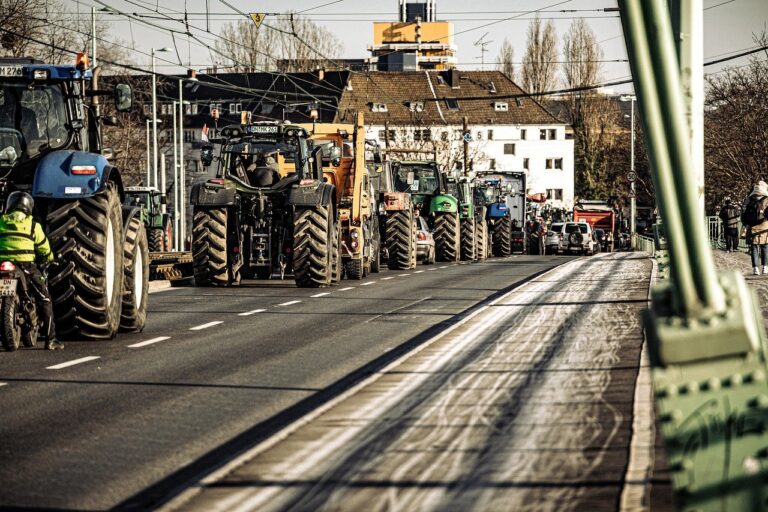As European farmers raise their voices in protest across the continent, it’s time to cut through the noise and focus on the real issue: the EU’s broken agricultural model and the glaring disparities in resource distribution. Now is the time for real solutions that prioritise farmers and pave the way towards a sustainable future.
The Green Deal is intended to transform food systems, ensuring fairness, health, and environmental sustainability while combating climate change. However, despite its noble intentions, farmers need substantial support to align with these ambitious goals effectively. The way the food and farming system functions in Europe is incompatible with utopian policies, leading to discord and rightful protests.
So far, most of the debate has been focused on surface-level initiatives like the Green Deal. While there are issues to solve, farmers complain about problems that are running deeper. To address their plight, the EU must focus on the issue’s deeper, often hidden roots. That means radical change, starting with overhauling the Common Agricultural Policy (CAP).
Let’s face it: the issue is not lack of funds. More than a third of the EU’s budget is allocated to agriculture. The problem lies in how these funds are distributed. Currently, subsidies based on cultivated land area are granted, disproportionately favouring the largest and wealthiest farmers. Approximately 80% of the EU’s farming budget goes to just 20% of farmers, exacerbating the challenges faced by small-scale farmers. This imbalance has led to the decline in EU farmers by over a third since 2005, as smaller operations struggle while more giant corporations thrive.
Politicians have responded to farmers’ protests with short-term fixes and political manoeuvring rather than the visionary leadership needed for lasting change. Instead of delving into the underlying challenges brought to the surface by the protests, the EU Commission has opted for quick fixes, such as rolling back parts of the Green Deal. This approach includes easing demands in the 2040 climate proposal, withdrawing plans to reduce pesticide use, and extending short-term benefits at the national level.
The farmers’ demands draw attention to the flaws in the EU’s current model. For instance, the outcry against cheap imports directly stems from the higher production costs of European farmers due to existing regulations. This disparity increases product prices, making it challenging to compete with cheaper imports. A necessary policy change is needed to reallocate more subsidies under the Common Agricultural Policy to alleviate production costs for small farmers instead of large enterprises, which already benefit from economies of scale.
Investing in European Biosolutions and increasing EU support is crucial to bolstering farmers. Bio-based fertilisers, for instance, can offer farmers affordable alternatives with similar or enhanced properties. Overall, there’s a need to transition food and material production from fossil-based to bio-based alternatives derived from natural plants, fostering innovation. Moreover, nutrient recycling from waste and side streams presents valuable opportunities to diversify rural incomes and foster sustainability.

Critical decisions lie ahead regarding the future of European agriculture, particularly concerning the prominence of intensive livestock farming and the adoption of circular principles within the sector. Embracing strategies to minimise waste and utilise by-products effectively is essential for achieving circular food systems. The EU must revise existing action plans and prioritise technological advancements to drive sustainability forward.
Finally, simply labelling Competitive Sustainability as the core of the agricultural policy falls short if policy and practice don’t align. As the EU endeavours to surpass global competitors in the shift towards sustainability, it must critically evaluate whether current economic models, particularly in agriculture, are equipped for this transition.
Looking ahead, the EU needs to refine an approach centred on competitive sustainability, ensuring competitiveness without compromising the well-being of farmers and citizens. This point is underscored by the EU’s emphasis on the need for products to be competitive in quality and price while promoting environmental sustainability. However, achieving this delicate balance is unlikely without a fundamental change in the current model.

Irakli Machaidze is a Georgian political writer, analytical journalist, and fellow member of Young Voices Europe. Irakli is currently based in Vienna, Austria, pursuing advanced studies in International Relations. He specialises in EU policy and regional security in Europe.



